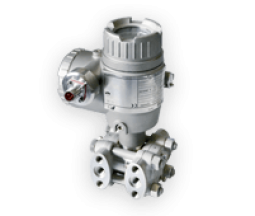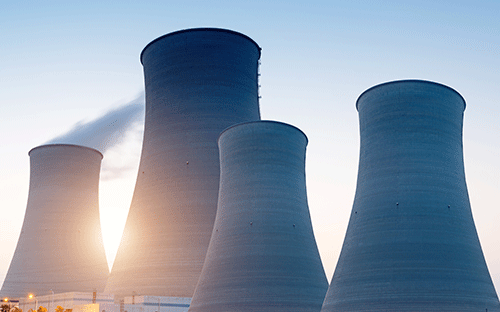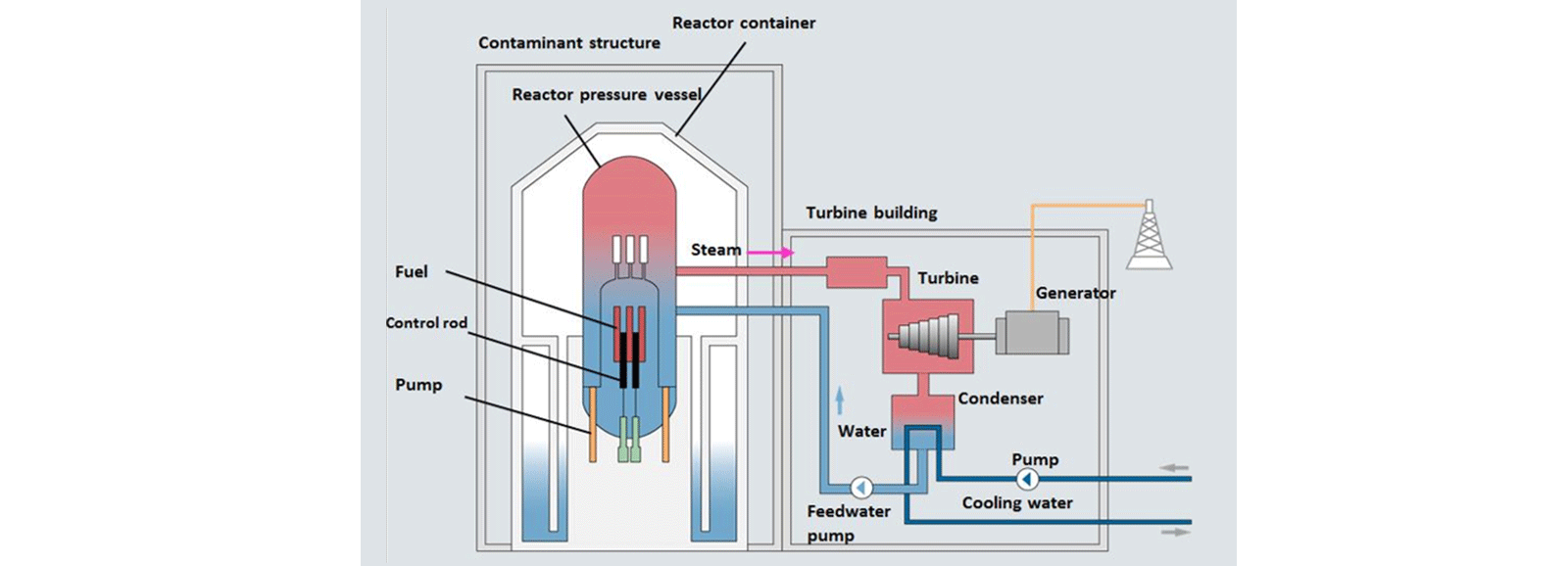
Nuclear differential pressure transmitter - FKC - NC - K3
ref : FKC - NC - K3 DiscoverNuclear power plants present specific risks as they all contain varying amounts of radioactive products that can cause human or environmental exposure to ionising radiation and its effects.
For the safe and efficient use of nuclear techniques, it is essential to be able to rely on measuring instruments. These instruments include flowmeters for liquids, gases or steam, temperature probes and pressure transmitters.
In addition, reliable diagnostic, control and radiation protection equipment is required. Radiation protection equipment includes neutron survey meters and electronic personal dosimeters.
These radiation detection and survey devices help to work out processes, limit operating risks and increase the economic value of the nuclear plants.

Fuji Electric measuring instruments support professionals in the nuclear industry during each phase of their production process in order to:
Compliance with current standards
Radioactivity control
Nuclear materials safety
Risk prevention
Nuclear power plants obtain heat from nuclear fission of uranium. The heat is transferred to steam which then operates a steam turbine to generate electricity.
Nuclear power plants can provide a large amount of electricity without emitting carbon during their operation. In addition, nuclear fuel can be reused after reprocessing. For these reasons, nuclear energy is today an important source of energy. However, the use of radioactive materials requires special precautions as radiation can cause serious effects on humans and the environment. The storage of radioactive waste remains a major issue.

In these reactors, the water used as a moderator is kept at high pressure to prevent it from boiling. The heated water in the reactor core is used to exchange heat with a secondary circuit, where steam is produced to drive the turbine. The EPR is a modern evolution of the PWR, with improvements in safety and efficiency.
These are the Russian version of pressurized water reactors. They operate on the same principle as PWRs, but with differences in design and architecture.
In this type of reactor, heavy water (deuterium) is used as a moderator. Thanks to its properties, heavy water makes it possible to use natural uranium as fuel. CANDU (Canadian Deuterium Uranium) reactors are an example of a PHWR.
These reactors use fast neutrons for fission, without moderator. They have the capacity to produce more fissile fuel than they consume, hence the term "breeder".
SMRs represent a new generation of small-scale nuclear power plants designed to be modular and scalable. Modularity" refers to the ability to mass-produce these reactors in factories, then transport them to the site of their final installation. SMRs can vary in capacity, typically from 10 MWe to 300 MWe. This flexibility means faster installation, lower costs, and the possibility of deploying them in remote regions or with lower energy requirements. SMRs are also designed with advanced safety features, and can often operate longer without refueling than conventional large reactors. Several underlying technologies are being explored for SMRs, including pressurized water, molten salt and liquid metal reactors.
Nuclear power plants can supply large quantities of electricity without emitting carbon during operation. In addition, nuclear fuel can be reused after reprocessing. For these reasons, nuclear power is an important source of energy today. However, the use of radioactive materials requires special precautions, as radiation can cause serious effects on humans and the environment. Disposal of radioactive waste remains a major challenge.